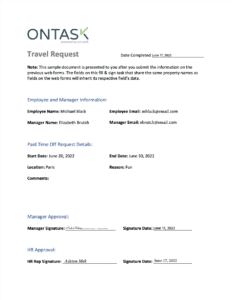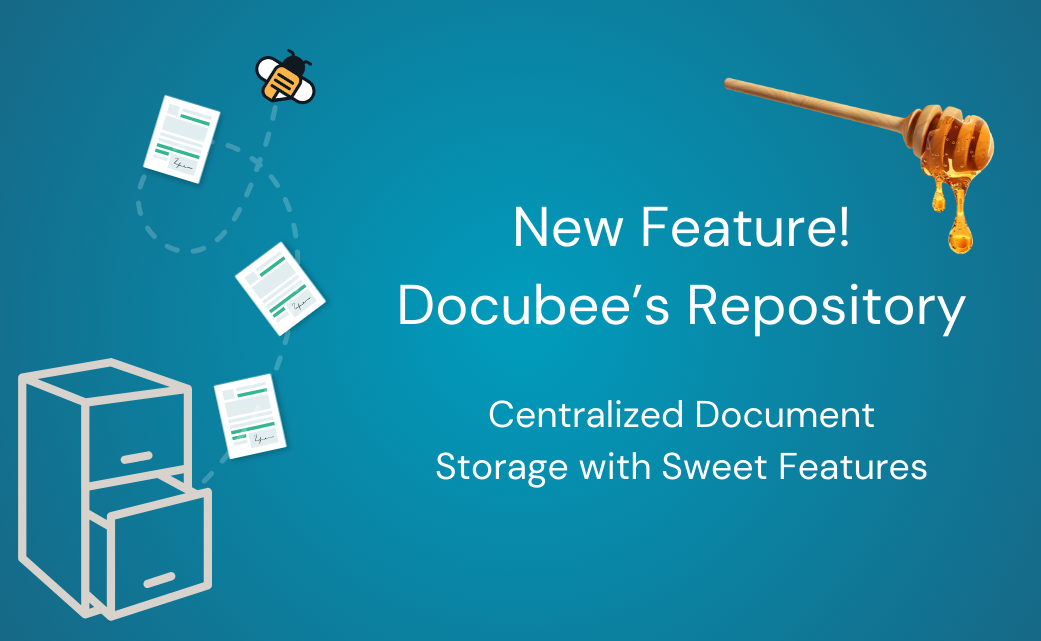70% of business professionals report spending up to 40% of their time on routine tasks like searching, editing, and sending documents, according to WorkMarket’s 2020 In(Sight) Report. As operations evolve, companies strive to automate as many processes as possible, save time, and eliminate manual processes.
In the insurance industry this is especially true. Agents are well aware that it is a highly regulated market, requiring companies to deliver large volumes of error-free policies and contracts in accordance with company guidelines and existing laws.
So, how can insurance companies meet these challenges? The answer is simple: insurance document automation. In today’s economy, this pioneering technology is the future of business, and insurance companies are rapidly adopting it to run their operations more efficiently.
What Document Automation Software Is and Isn’t
Inefficient document processes are often underestimated in terms of their physical and opportunity costs. Therefore, it comes as no surprise that a significant portion of an organization’s operating expenses is devoted to preparing and processing documents. In addition to spending money on paper, envelopes, ink, and postage, it also takes your employees away from more productive work. Insurance brokerages know this all too well.

Manually inserting documents into envelopes requires employees to print, sort, and group documents. Furthermore, they need to validate contact information to reduce the risk of undeliverable mail. If you have a large brokerage and a lot of mail, these costs will add up to thousands of dollars.
Insurance document automation allows you to optimize and streamline the process of creating, personalizing, and sending customer communications.
But What is Document Automation in the First Place?
Document automation is a technology that belongs to intelligent document processing (IDP). The IDP industry has existed for many years. Despite this, IDP software has made significant progress thanks to machine learning and artificial intelligence.
Integrating an intelligent document automation platform into your workflow means you can manage all your documents in one place. And, you can send documents securely through multiple channels (physical or digital), such as email and a dedicated customer portal.
With document workflow management software, you can add targeted promotional messaging, personalize documents, and group them for the same recipient—reducing postal costs. You can even review documents from anywhere with modern platforms that have an approval process built-in.
It’s also possible to automate individual or batch communications, whether they’re claims notices, life insurance forms, or defaults and unpaid notices. If you want to reduce your mailing process to just a few clicks, you can also outsource your large, cumbersome mailings to a secure, outsource facility.

The Top 7 Benefits of Document Automation for Insurance Brokerages
Today’s insurance companies face many competitive barriers that can be remedied through document automation. The benefits of document automation for insurers include:
1. Ensure Compliance
Regulators impose a lot of rules and regulations on insurers. A document error can result in a lawsuit, expensive fines, or a negative customer experience. Documents that are not in good order (NIGO) can cost three to four times more to process than documents that are error-free.
The task of manually complying with every applicable law isn’t just challenging. It’s almost impossible. Document automation can help solve this problem by eliminating the guesswork involved in compliance concerns. What does this entail?
Document automation for insurance can detect errors before they occur. By applying these business rules to insurance documents, you can incorporate predefined conditions to modify your documents. Automated document management solutions also ensure that your remote workforce adheres to your policies and the law. Many features are available for you to control, such as who can create documents, when they can be created, who can receive them, etc.
2. Improve Efficiency
Using insurance document automation technology can help brokerages process documents more efficiently. Document automation has proven to speed up claim processing by 89% for companies that use it. That translates to seven times more claims processed per day.
An improved claims processing process will directly affect the customer experience. It will no longer take weeks for clients to learn the disposition of their claims. By improving efficiency, your company can maintain and develop a positive brand image.
3. Improve Cybersecurity Efforts
With employees accessing data systems remotely, cyber security has become more critical than ever. When sensitive data is in transit, such as from your CRM to a document stored on an employee’s local device, data breaches are much more likely to occur.
With document management software for insurance companies, the cloud compiles your documents, preventing you from manually handling sensitive customer data. Documents are also encrypted to ensure security.
4. Provide Better Customer Service
Thanks to document automation, insurance companies can provide higher-quality service to customers by quickly converting documents into actionable, usable data. By exporting the data, IDP can streamline policy creation, facilitate seamless bill processing, and reduce claims processing time.
Consumers are willing to pay more for services when the provider has a track record of excellent customer service, according to recent statistics. So, you can also increase the average lifetime value of your customers by improving the quality of service you provide, as well as having quick response times. As a result, you can get clients to renew their policies and keep them from jumping ship in pursuit of cheaper rates.
5. Increase Your Bottom Line
The pandemic has impacted nearly every industry, including insurance. Recovery from losses and increasing the bottom line were two major goals for 2022.
Insurance document automation solutions have helped with this in several ways—one benefit being the time it saves in other areas.
For example, it can speed up the sales process. Salespeople can keep new policies moving by providing relevant information to customers with the help of automated insurance policy quotes, contracts, and bills. Reps can track metrics for their documents like the number of opens, allowing them to make informed decisions about next steps.
Last but not least, some document automation applications offer proprietary eSignature functionality, or offer easy integration with third-party providers. The convenience of having eSignature software functionality built into the automation solution allows anyone to sign a contract no matter where they are, agent or policy holder.
6. Empower Remote Work
Though 2022 may have offered a glint of hope for the pandemic’s end, remote work will likely remain a way of life for some time. In order to ensure business continuity, it is crucial to equip your brokerages with the best tools for working from home.
In the insurance industry, this means allowing remote workers to create and distribute documents securely.

7. A Scalable Solution As Your Company Grows
When an insurance document automation process is set up, it is simple to update and maintain document templates without requiring a developer’s expertise. You can adapt the process to changes in the service offerings and documents as they occur. As soon as an application is established, you can easily roll it out to new teams, departments, and offices.
Insurance Document Automation Is the Future For Brokerages
By using document automation solutions that integrate with AI tools, insurers can develop next-generation disruptive innovations.
The insurance industry is highly competitive, where providers compete primarily based on price and the quality of services they deliver. Automating documents helps insurers compete more effectively by allowing them to price and underwrite more accurately, increase efficiency, and ultimately, provide better service to their clients.
Looking for an automated solution for insurance document management? Solve your paperwork problems with Docubee. Request a demo today.











